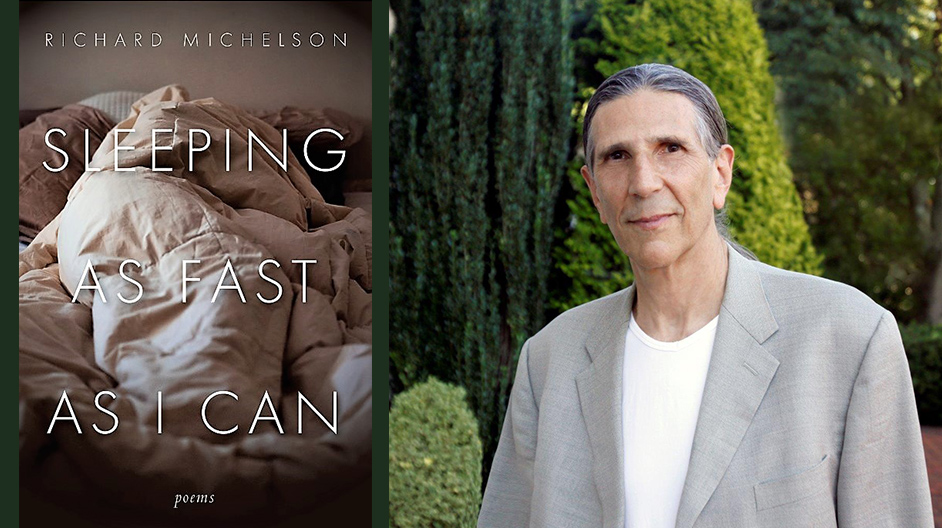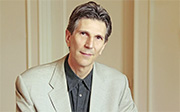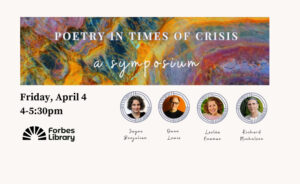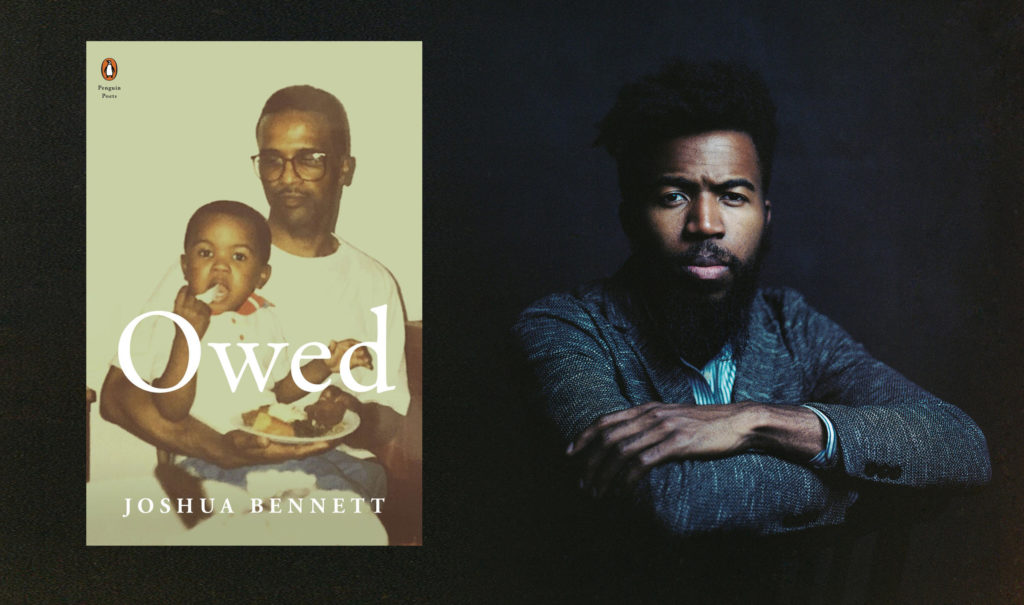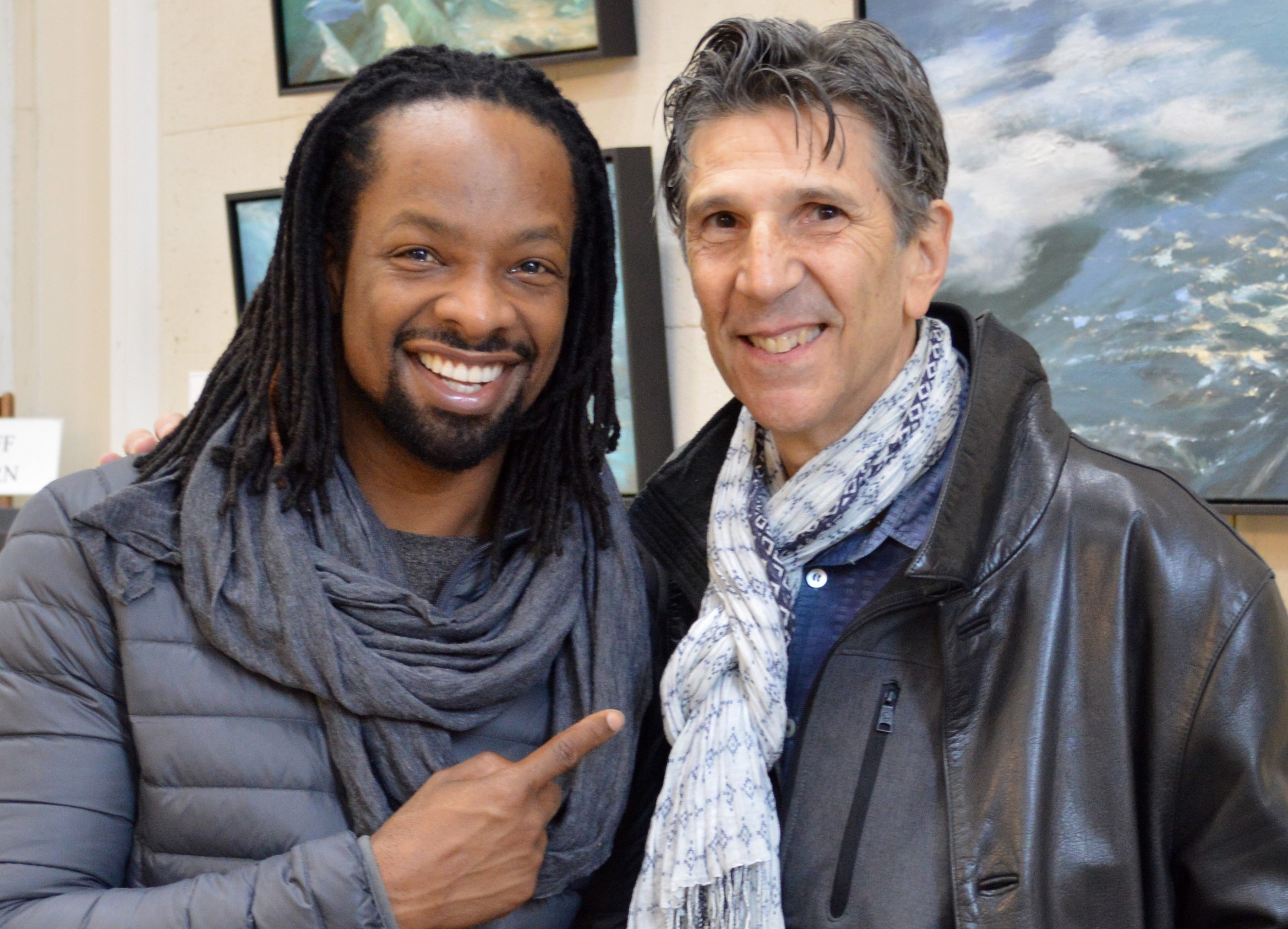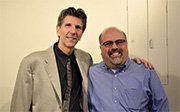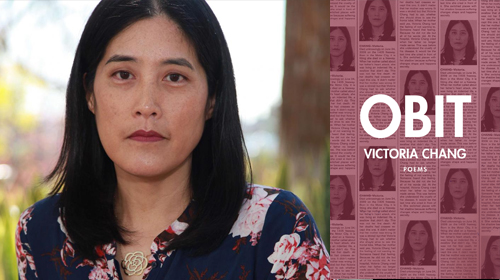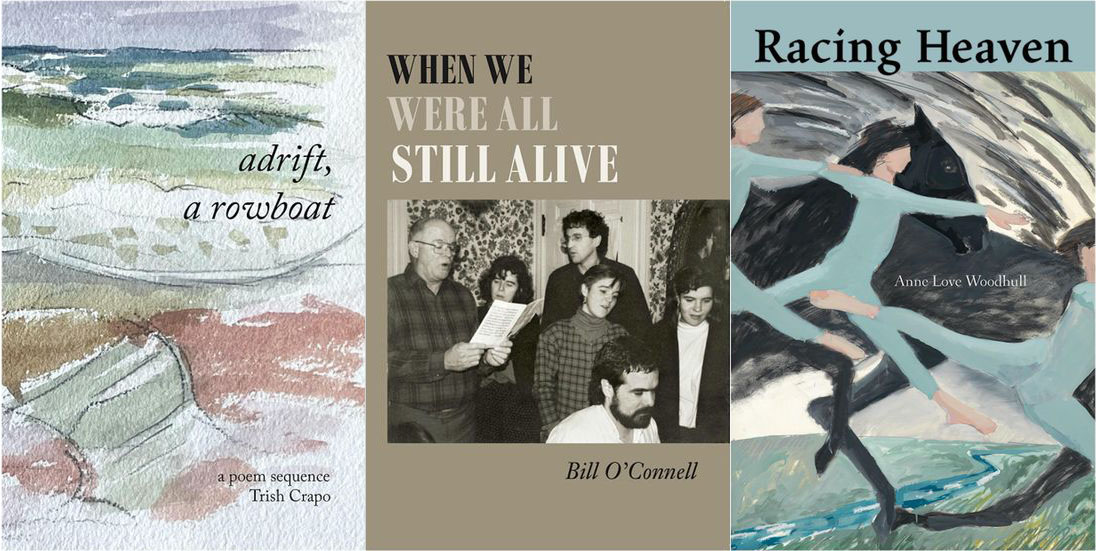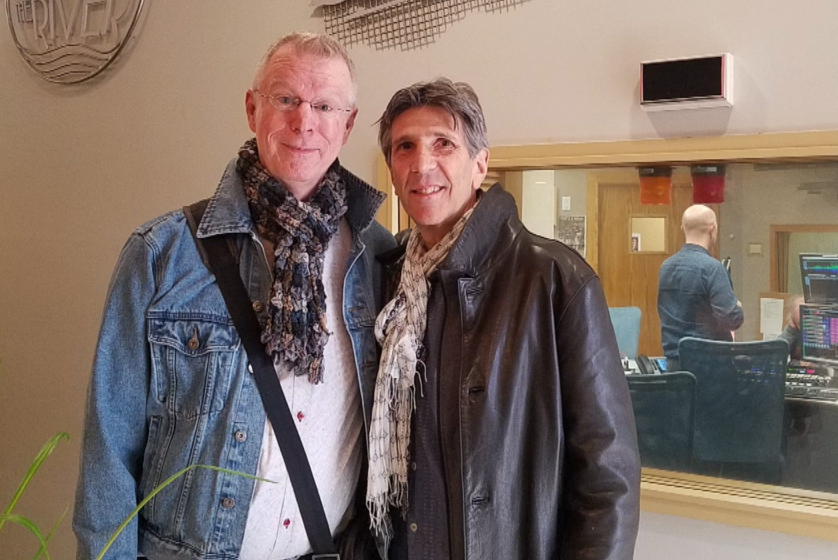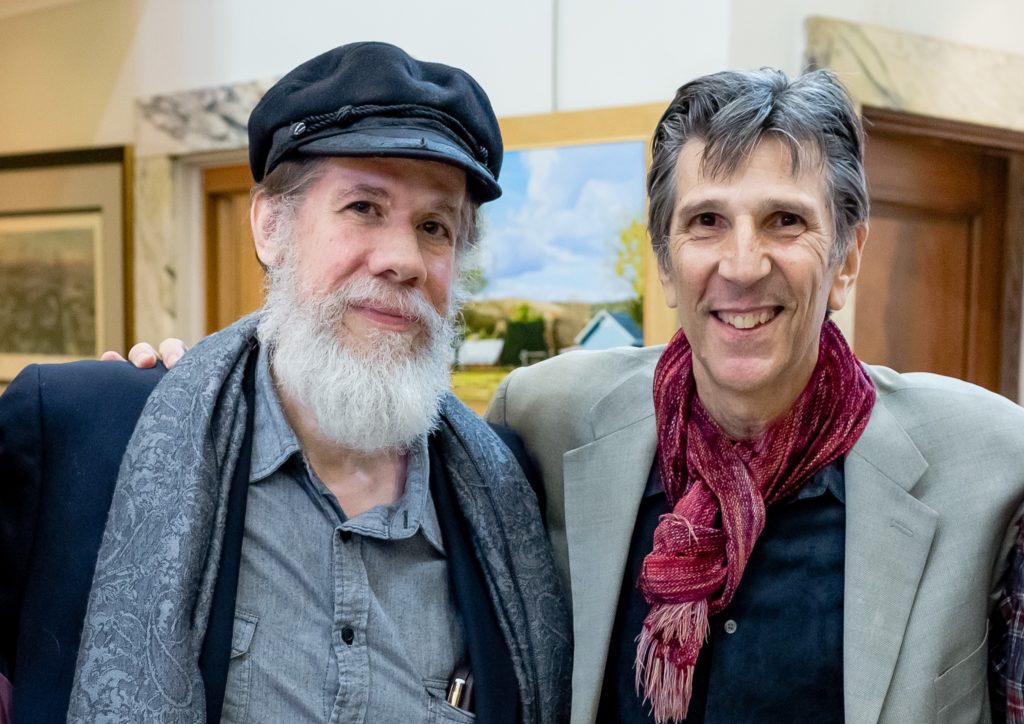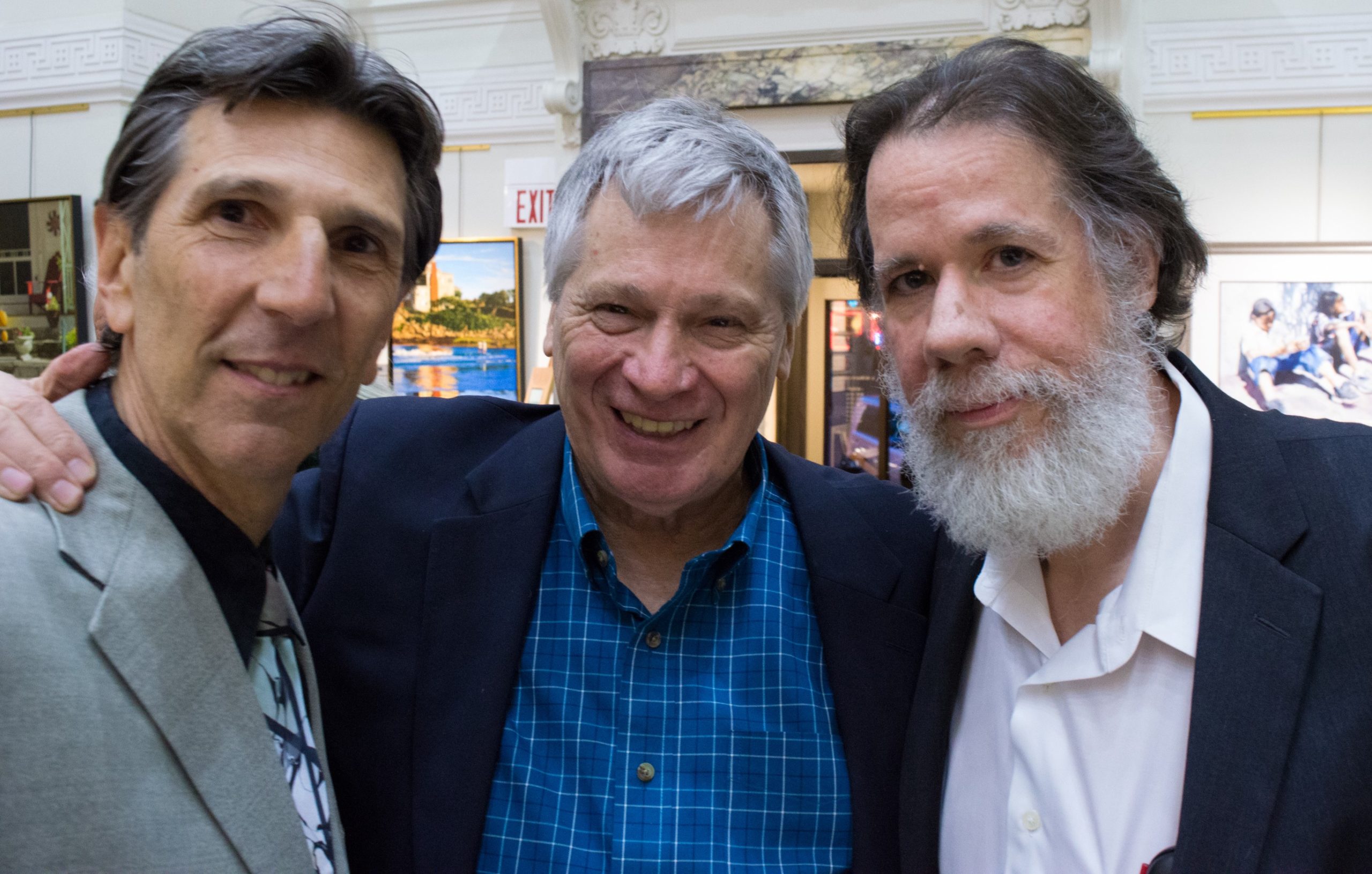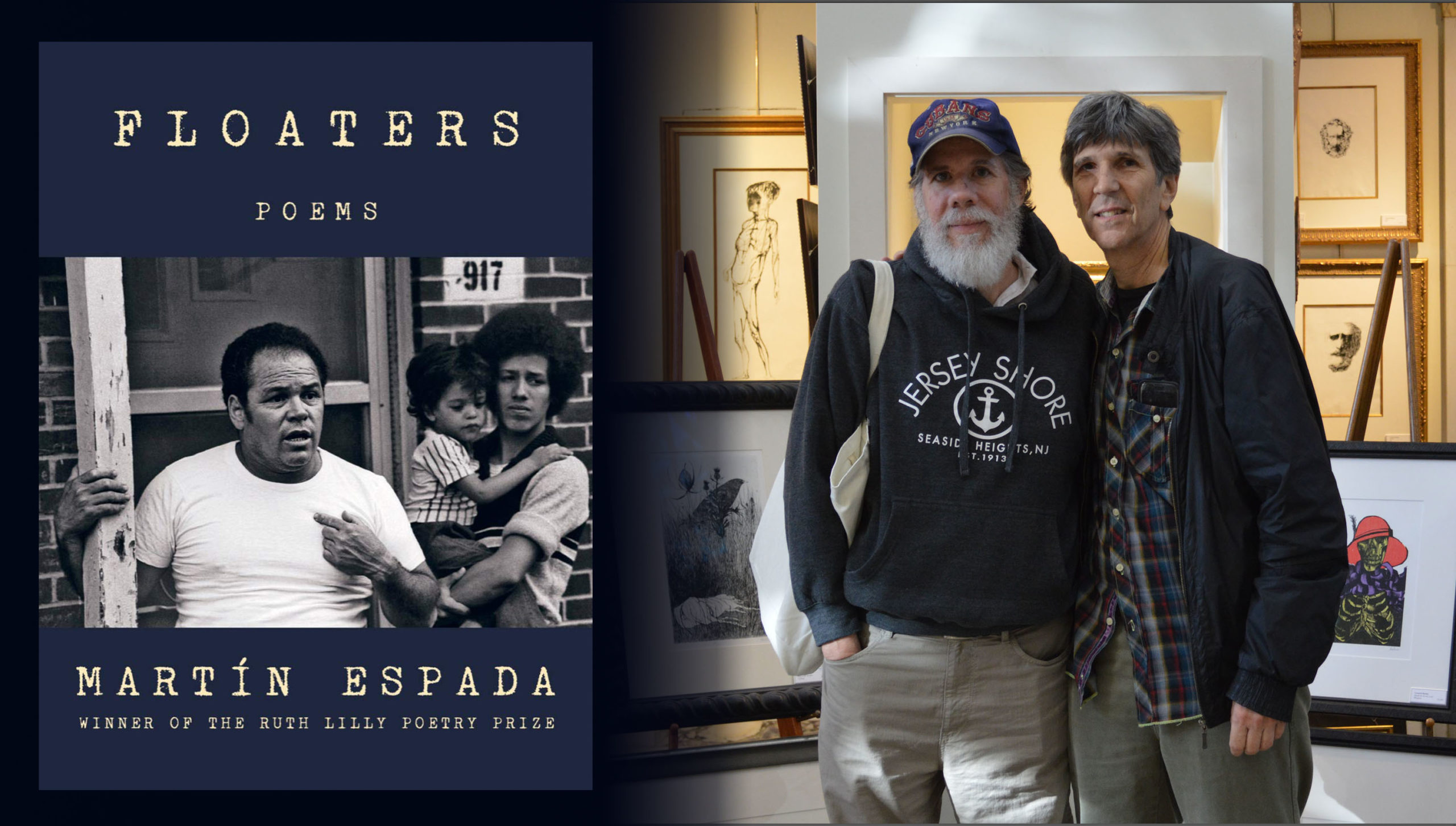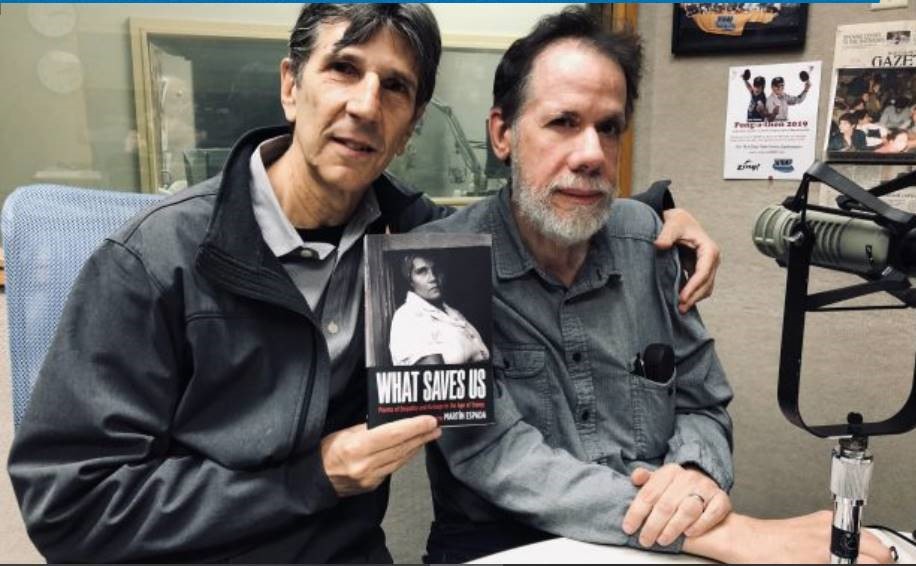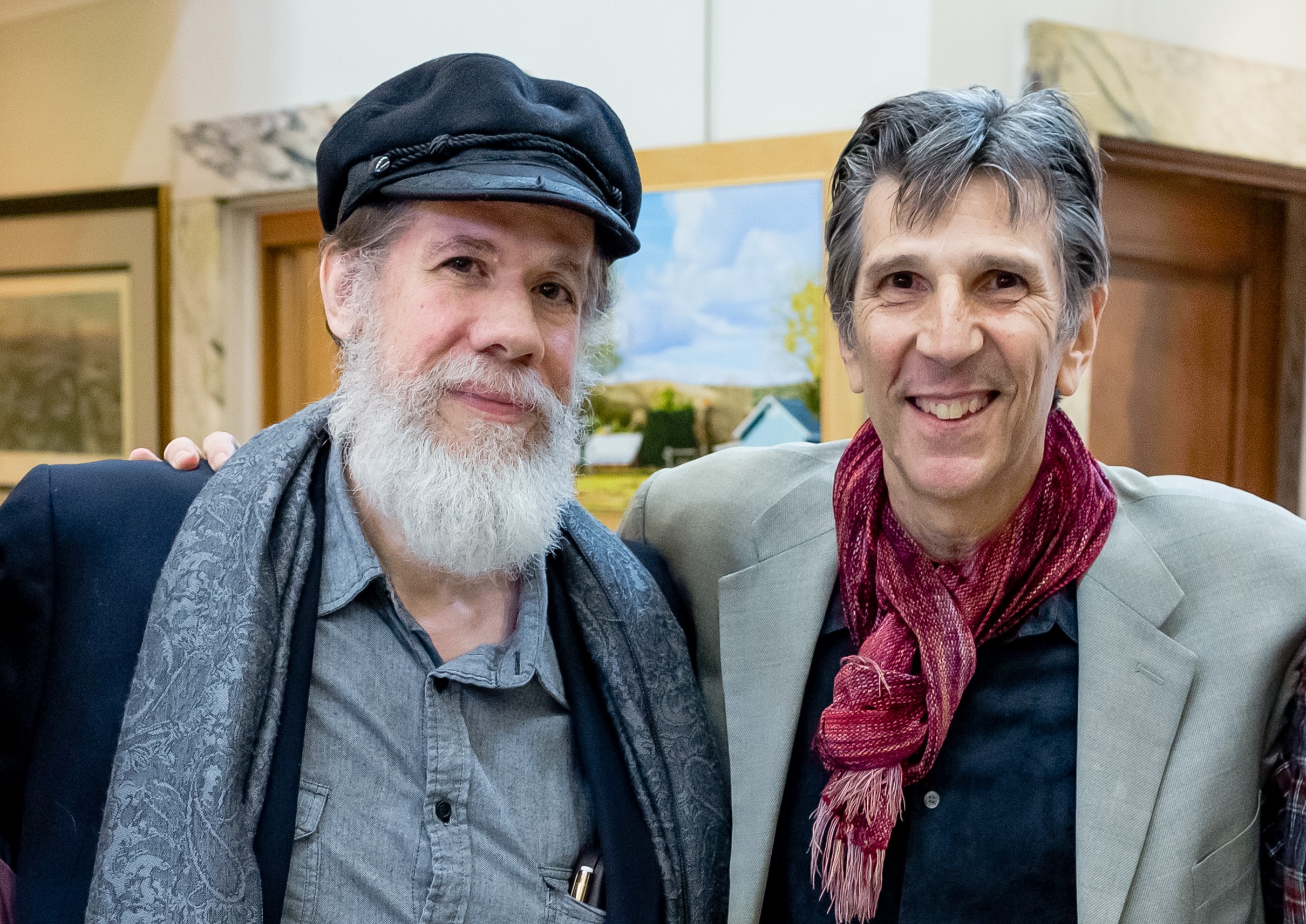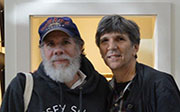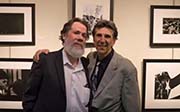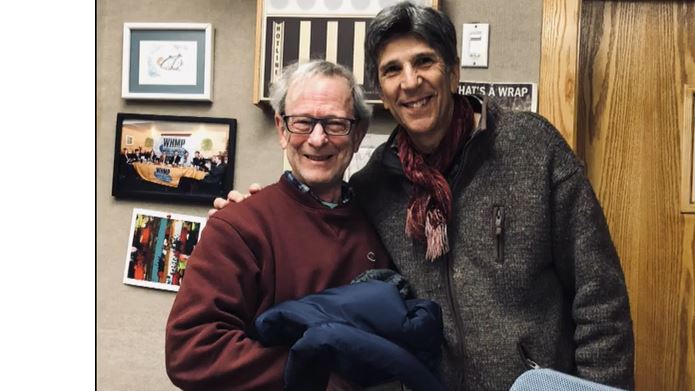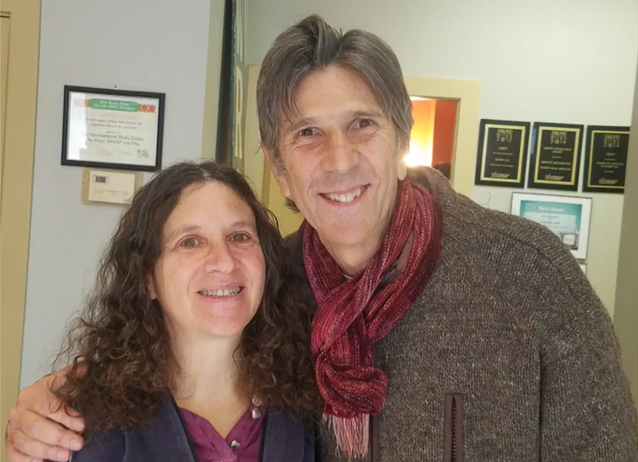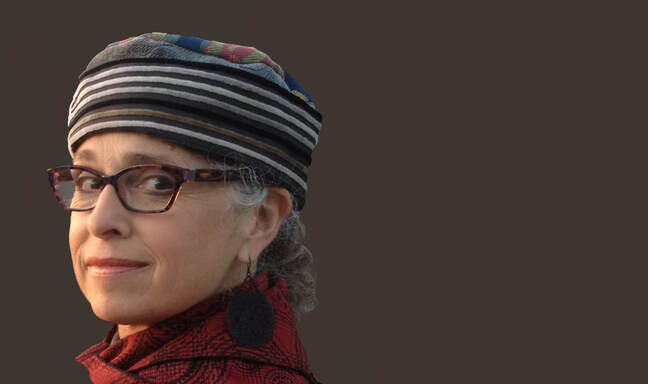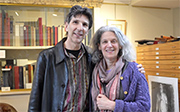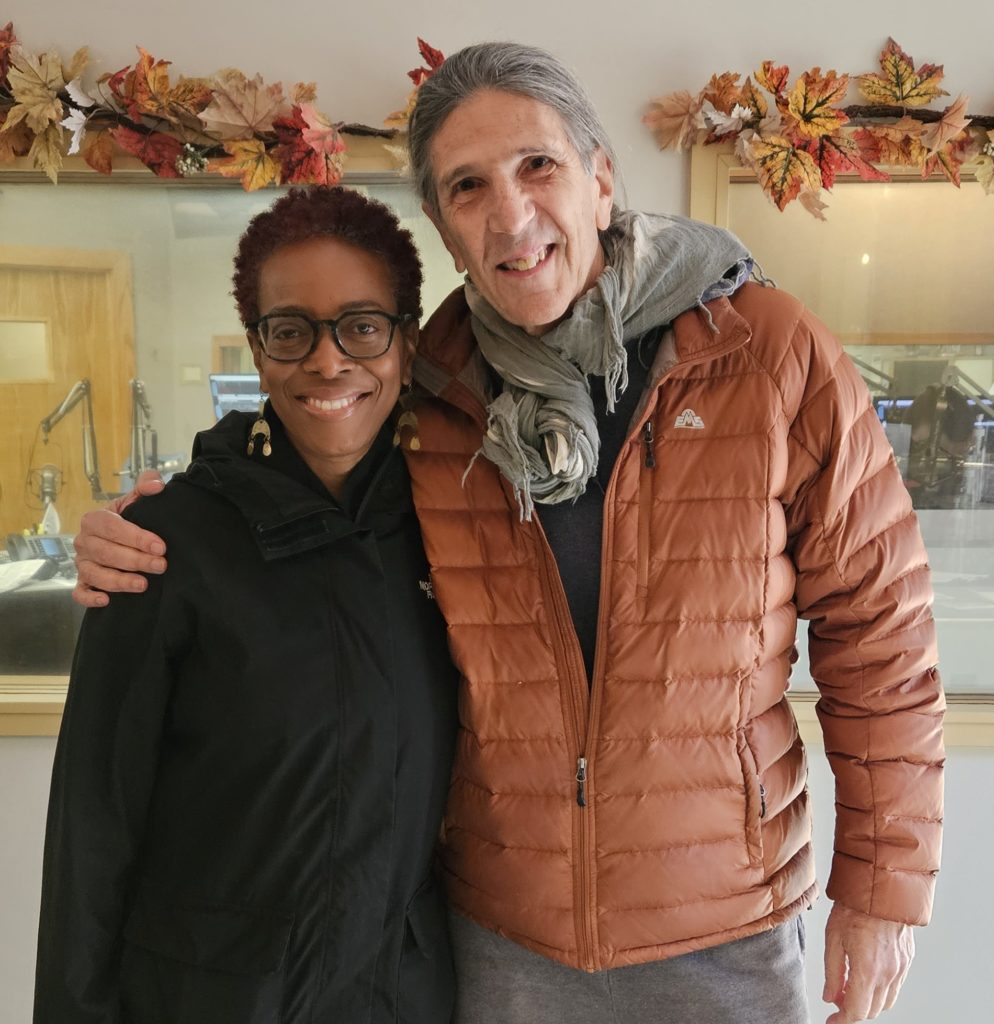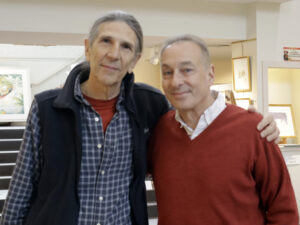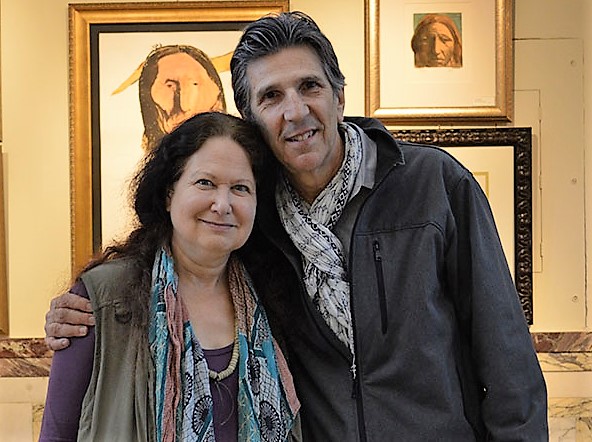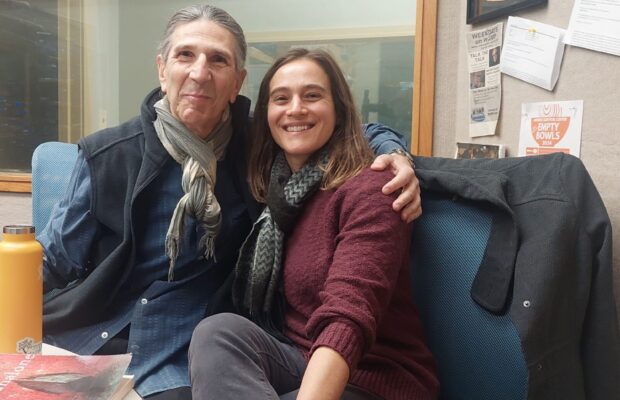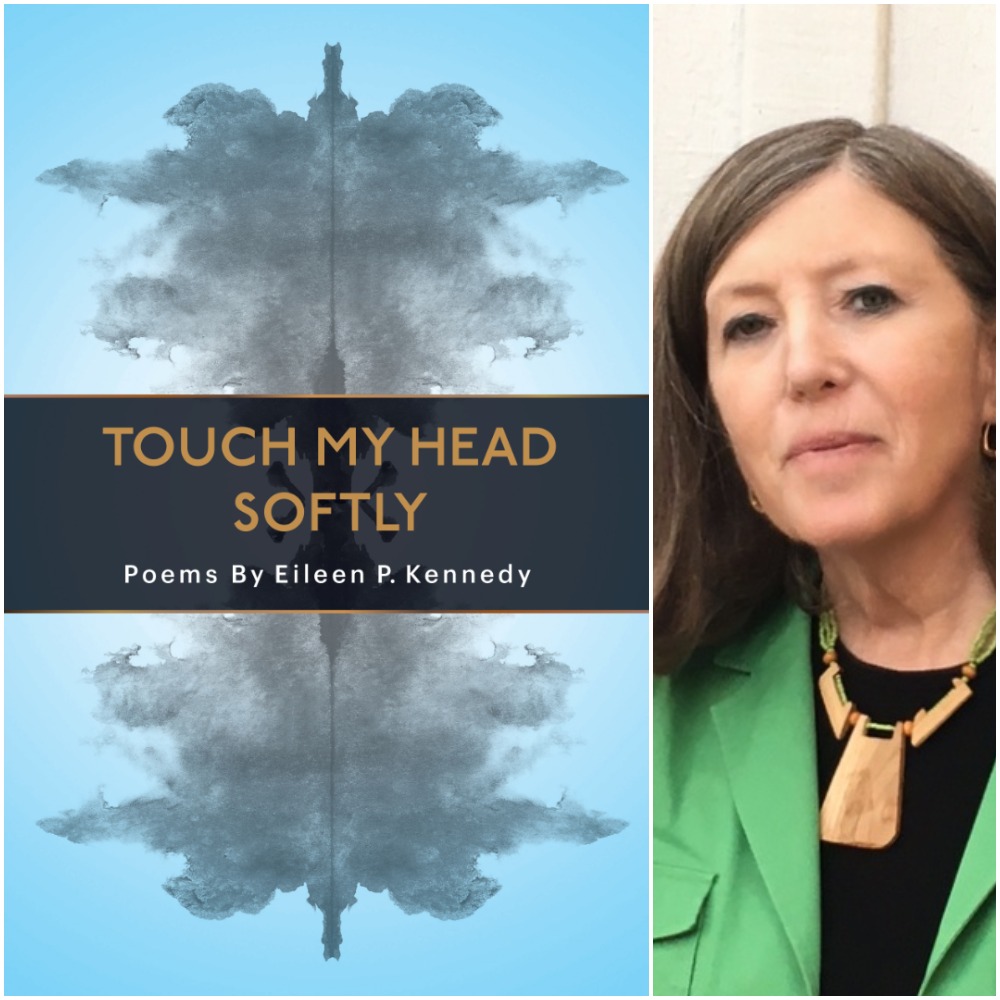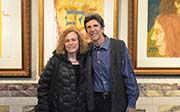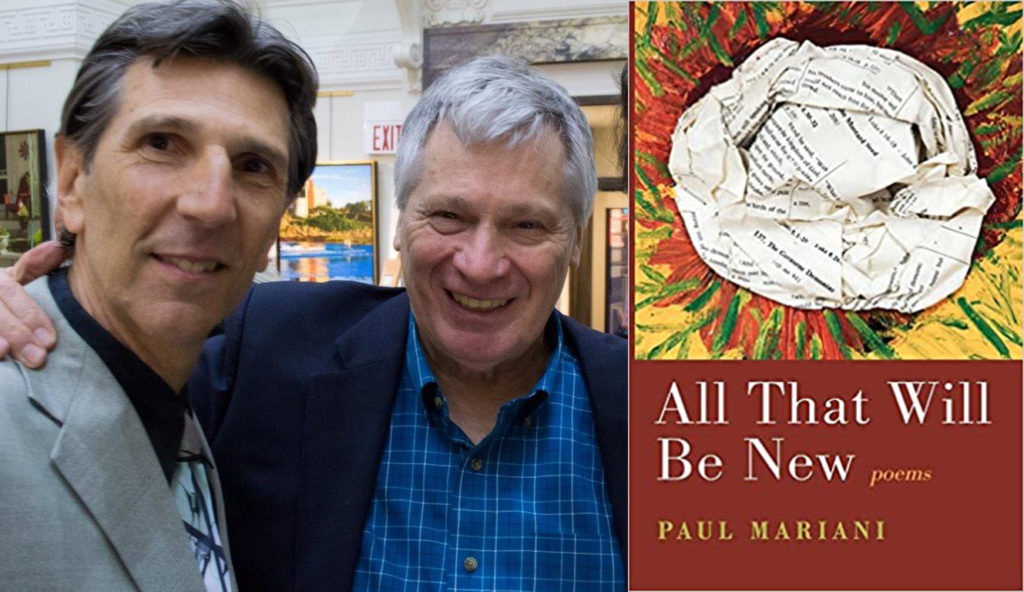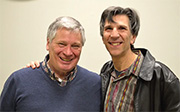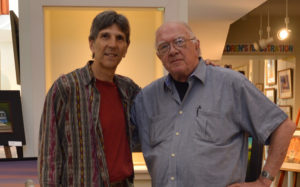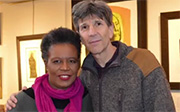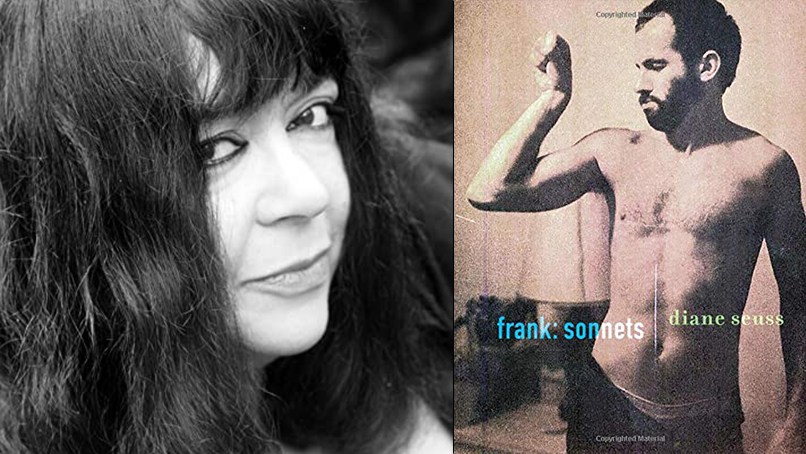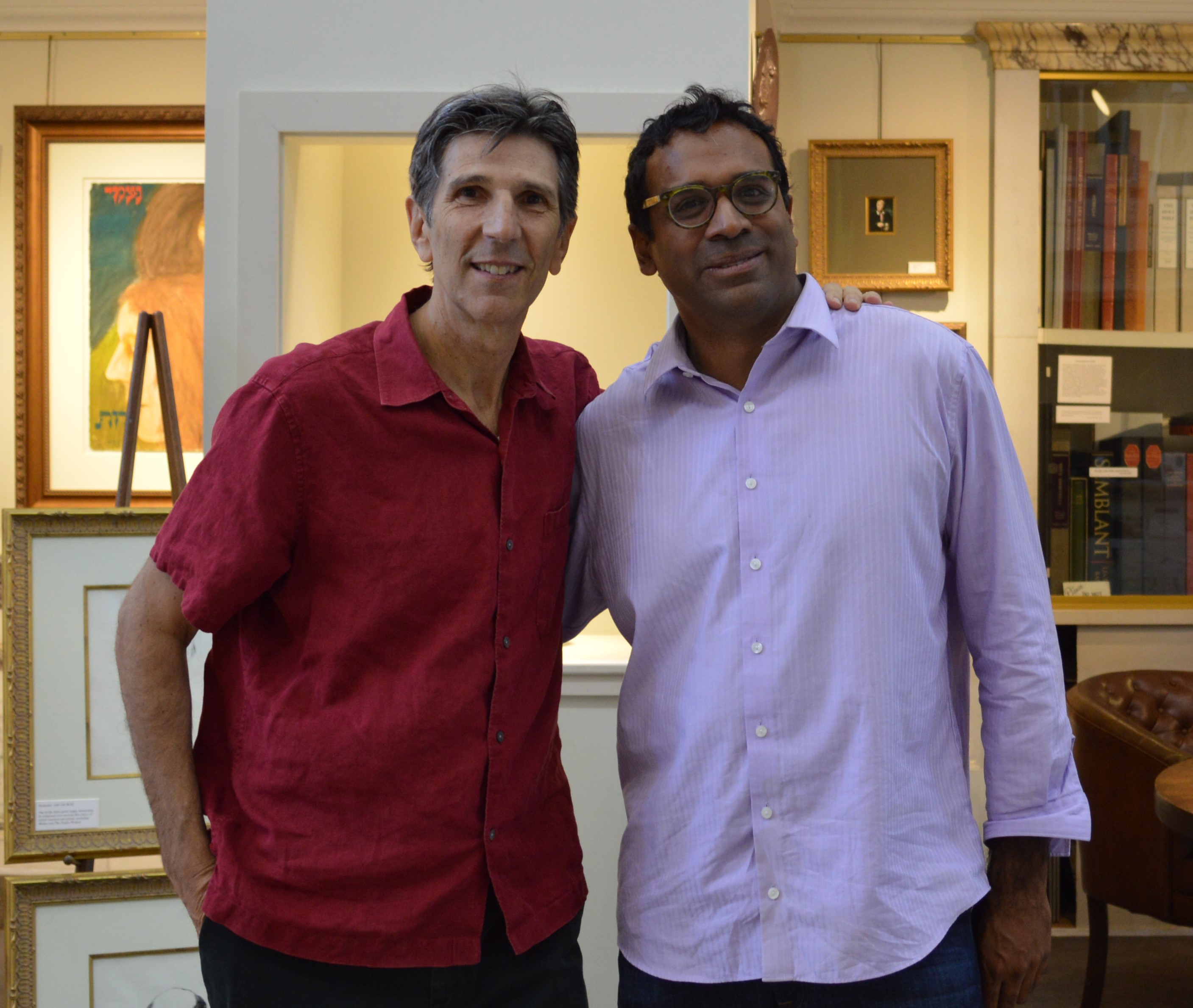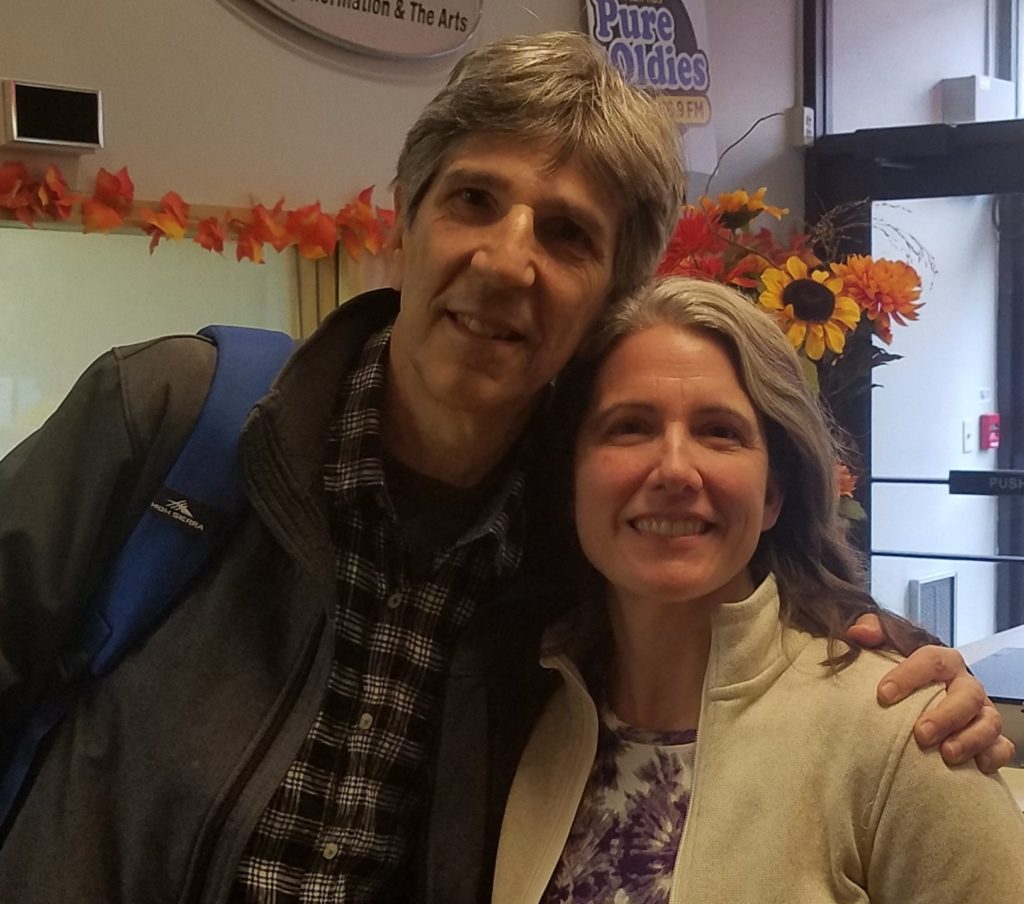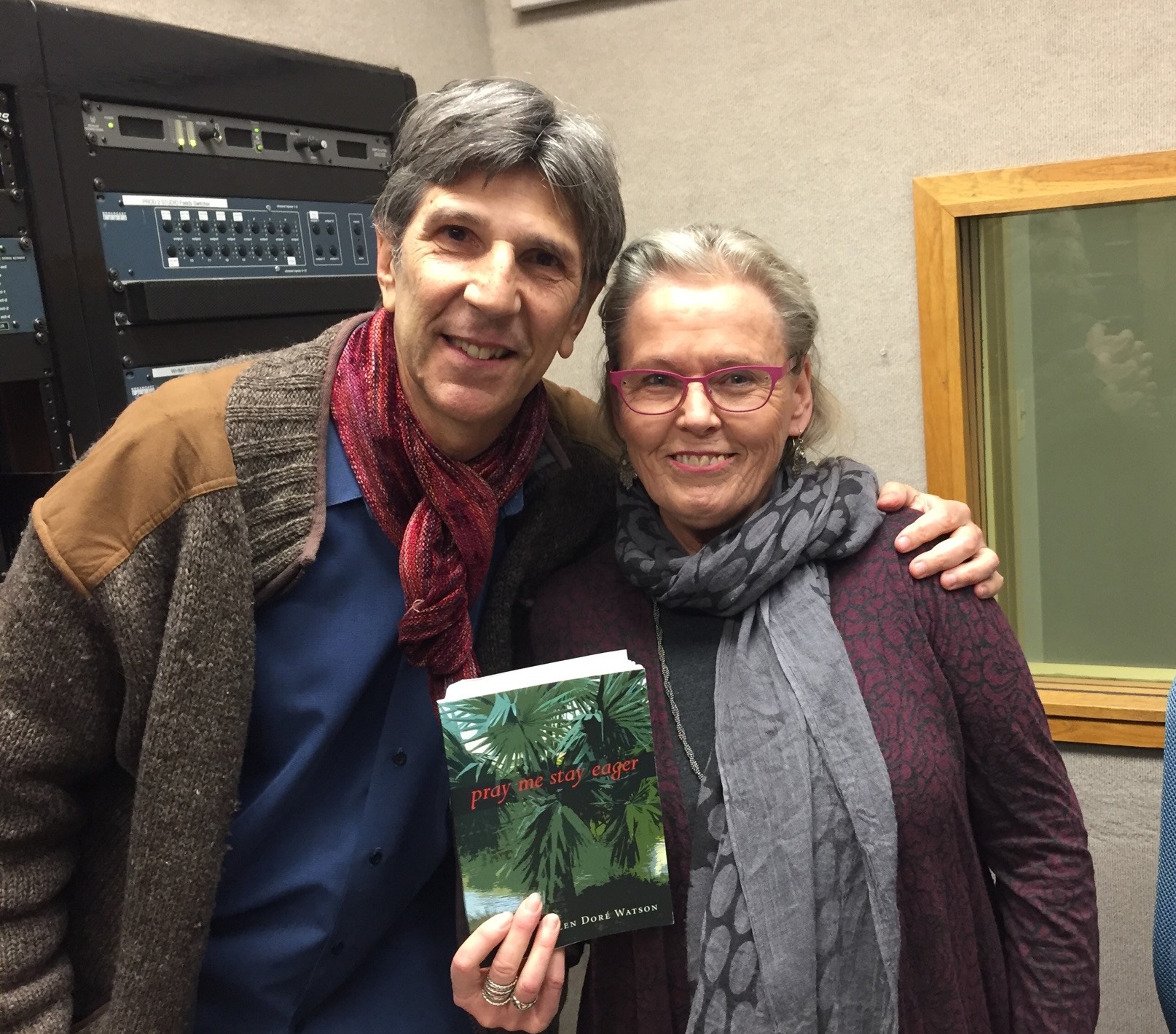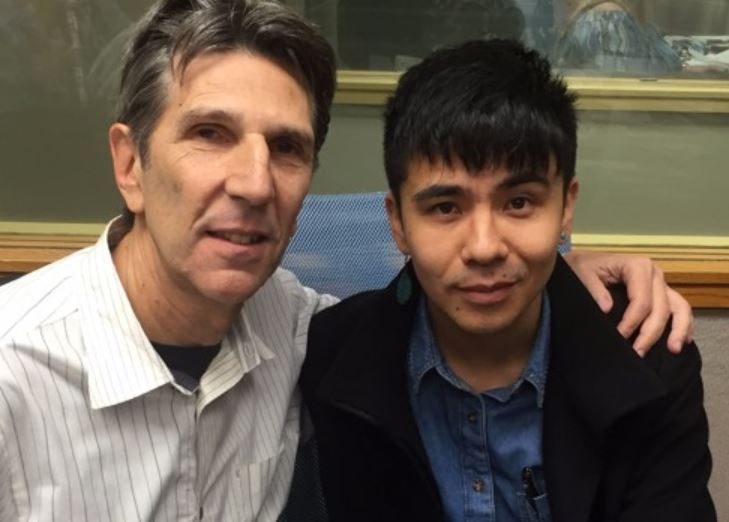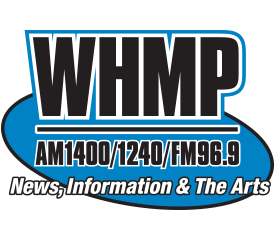
It has been an honor being Poet Laureate of a city that takes the arts seriously enough to assign a Laureate. I thank WHMP, Bill Newman, and Monte Belmonte for allowing me to discuss poetry, politics, science, art, nature and whatever else is on my mind, with some of the finest poets writing today.
National Spotlight
Richard Michelson talks about his newest book publication, and first reading for his latest poetry book “Sleeping as Fast as I Can”.
Richard Michelson announces his book publication celebration for his latest poetry book “More Money than God”.
Elizabeth Alexander and Nikky Finney, President Obama’s first inauguration poet and the National Book Award Winner read their poetry and discuss politics the day after the Republicans 2014 midterm election victory.
Doug Anderson discusses his poetic concerns which range from being a combat medic and “Vietnam war poet,” to a writing about and living at a horse rescue facility/organic farm.
Doug Anderson – the Poetry of War and Loss “What is unbearable will be heard or sicken the silent body.”
Joshua Bennett reads from his newest book, Owed. He reflects on his own body of work during the current political climate, and why we need poetry in times of difficulty.
Jericho Brown reads from his newest collection, The Tradition. He discusses how the personal and political merge in his work, and a poet’s responsibility to imagination.
Richard Blanco, President Obama’s second term inauguration poet talks about growing up as a gay Latino immigrant in 1970’s America, how his life has changed since his national spotlight, and how he approaches writing a personal versus public poem.
Rafael Campo teaches and practices Internal Medicine at Harvard Medical School and Beth Israel in Boston. He is also the author of 6 volumes of poetry and teaches creative writing at Lesley University’s MFA Program. He discusses how he juggles the two disciplines and how the study of poetry makes him a better doctor.
Victoria Chang and Richard Michelson talk about Victoria’s new book of poetry, OBIT.
Richard Michelson talks to Trish Crapo, Bill O’Connell, and Anne Love Woodhull about their upcoming releases from Open Field Press: Adrift, a Rowboat, When We Were All Still Alive, and Racing Heaven, respectively.
Alison Deming, the poet, essayist and environmental activist discusses climate change and the links between science and poetry.
Richard Michelson talks to Patrick Donnelly about Jesus, Maria Callas, Japanese poetry, and his new collection Little Known Operas.
Patrick Donnelly, the Director of the Poetry Seminar at the Robert Frost Place talks about his translations of Japanese Poetry, and why he interspersed them with his original poems in his Lambda Finalist book, Nocturnes of the Brothel of Ruin. Plus the former actor gives us tips for how best to read poetry in public.
Mark Doty, one of America’s most lauded poets discusses the Supreme Court decision on Gay marriage (and his subsequent Facebook marriage proposal), being a role model to younger gay poets, his dog Ned, and Shakespeare.
Amy Dryansky, the Massachusetts Book Award winning poet talks about her blog Pokey Mama and how motherhood affected her poetry, and how it affects the poetry of women poets in general.
Martin Espada and Richard Michelson discuss his upcoming reading at the Forbes Library in Northampton, and reads one of his pieces.
Martin Espada and Rich Michelson talk about becoming a National Book Award finalist, and receiving a Letras Boricuas Fellowship Award on Northampton Poetry Radio, November 2021.
Martin Espada, Paul Mariani and Rich Michelson on Northampton Poetry Radio, February 2021.
Martin Espada and Rich Michelson discuss and read from his newly released book, Floaters, on the day of the inauguration.
Martin Espada and Rich Michelson discuss and read from the new anthology “What Saves Us: Poems of Empathy and Outrage in the Age of Trump”.
Martin Espada discusses poetry in the age of Trump, and reads from his Poetry Foundation 2018 Ruth Lilly Poetry Prize, which honors a living US poet for outstanding lifetime achievement.
Martín Espada is the recipient of the $100,000.00 2018 Ruth Lilly Prize for Lifetime Achievement from the Poetry Foundation. Join us as we celebrate his achievements and he reads from his work.
Martín Espada talks about Poetry, Pueto Rico Hurricane Relief, and what you can do to help.
Martín Espada discusses his newest collection, Vivas to Those Who Have Failed and the influence his father, Frank, photographer and community organizer, had on his life.
In our holiday show Martín Espada, the “Latino poet of his generation” and former tenants rights lawyer, reads “Imagine the Angels of Bread,” and talks about political imagination, poetry as an agent of social change, and growing up in the East New York neighborhood of Brooklyn (a few blocks from host Richard Michelson).
Rhina Espaillat, discusses her bilingual Dominican-American background, on the occasion of the newly published biography The Once and Future Muse: The Poetry and Poetics of Rhina P. Espaillat.
Howard Fearstein reads fro his new collection, Googootz, and talks about his journey from Brooklyn to Western Massachusetts.
D. Dina Friedman on her first chapbook and passion for world travels.
Ross Gay talks poetry, gardening, gratitude, compassion, and how we can find joy in these difficult times of racism and political unrest.
Magdalena Gómez, Springfield’s Poet Laureate talks with Bill Newman and Richard Michelson about her upcoming reading, and recites from her book Mi’ja.
Deborah Gorlin, winner of the May Sarton 2014 Book Prize and poetry co-editor of the Massachusetts Review talks about her latest collection and incorporating her New Jersey voice into her poetic language.
Yona Harvery and Richard Michelson talk about poetry and writing for Marvel Comics.
John Hennessy and Richard Michelson discuss Hennessy’s newest poetry book, Exit Garden State.
Juan Felipe Herrera talks about his commitment to language and social justice, and his rise from the son of migrant workers to become the first Latino US Poet Laureate.
James Heflin talks about his Krakatoa Picnic, his new collection from Hedgerow Books.
Jane Hirschfield on science/math and poetry; and poetry as spritual practice
Richard Hoffman talks about the difference between memoir and poetry, and tackling the subject of physical abuse.
Joan Houlihan, the poet and critic discusses the mythic, allegorical, and religious themes of her books The US, and Ay, her use of non-tradition language, and the inherent value of negative reviews.
Marie Howe, former NY State Poet Laureate discusses poetry and religion, and reads from her latest collection, Magdalene.
Jessica Jacobs reads from and discusses her new collection of poems, Unalone, based on her engagement with the book of Genesis; and why she founded Yetzirah, a hearth for Jewish Poetry.
Eileen Kennedy discusses her poetry collection about losing a lover to early onset Alzheimer’s disease.
Joy Ladin discusses transgender issues, and how her own transition has affected her poetic voice.
Joan Larkin discusses her 1975 pioneering anthology of Lesbian poetry, the value of “identity movements” in poetry, and how she tackles the emotional intensity of subjects like alcoholism and rape with a formal mastery.
Margaret Lloyd, poet and watercolorist, and Roz Driscoll, poet and sculptor, discuss the differences in their varied art forms, ekphrastic poetry, and how they choose in which medium to express themselves. Both books are published by Northampton’s newest press, Open Field.
 Fred Marchant, one of the first officers honorably discharged for conscientious objection during the war in Vietnam discusses the poetry of resistance, and his translations of the Vietnamese poet Tran Dang Khoa.
Fred Marchant, one of the first officers honorably discharged for conscientious objection during the war in Vietnam discusses the poetry of resistance, and his translations of the Vietnamese poet Tran Dang Khoa.
Paul Mariani discusses his upcoming reading, and his new book All That Will Be New with Bill Newman and Richard Michelson on Northampton Poetry Radio.
Celebrating the Poetry of Paul Mariani, with Richard Michelson and Martin Espada.
Paul Mariani, talks about his biographies of Williams, Stevens, Hopkins, Crane,Berryman; making movies with James Franco; and religious poetry as prayer.
W.S. Merwin, the two-time Pulitzer Prize winning poet, and U.S. Poet Laureate (2010 to 2012) talks about the relationship between poetry and politicking, his stance against the Viet Nam war, his love of the natural world and his current eco-activism. He discusses John Berryman, Robert Bly, growing up with a stern Minister father, and the connections between poetry and prayer.
Yes, I interview myself about my book of children’s poems S is for Sea Glass, on location from the beach at Martha’s Vineyard, with Barack Obama and Hillary Clinton.
Richard Michelson discusses his Nourish the Body, Nourish the Soul initiative, where 50 Northampton restaurants feature a poem by a different local poet on their menu, or on their wall. Eat Local/ Read Local.
Ed Ochester discusses how he incorporates “complexity, not confusion” in the “plain surface texture” of his poems;, and he talks about his 36 year stewardship of the Pitt Poetry Series, during which time he has brought a great diversity of class, ethnicity, racial, and sexual minority voices to the forefront of American poetry.
Gregory Orr discusses his responsibility for killing his brother during a hunting accident age 12, the use of lyric poetry as a response to tragedy, and whether poetry can, or should, act as therapy.
Alicia Ostriker, the groundbreaking “Feminist poet” discusses the renaissance of women writers in the 1960’s and 1970’s, the differences between women’s and men’s poetry, the mixing of the political and personal in her poetry; and her attempts to alter the patriarchal nature of Judaism from within.
Robert Pinsky returns to NPR to talk about language, history, his latest book of poetry, At the Foundling Hospital, and the poem as resistance to the current political administration.
Robert Pinsky, three term United States Poet Laureate on the Poet as a Public Figure, the Favorite Poem Project, the relevance of poetry as a part of the communal debate, and his appearance on the Simpsons.
Claudia Rankine, National Book Award finalist, talks about the micro-aggressions that African-Americans encounter daily, and how we can use poetry to begin a useful conversation about race in America.
Kay Ryan, U.S. Poet Laureate (2008-2010), MacArthur Fellow and Pulitzer Prize winner discusses self-publishing her first book at age 38, and how she moved from being a poetry world outsider, to one of its central figures. We learn how she met her life partner in the San Quentin prison.
Diane Seuss, poet, discusses her new book of sonnets, What frank: sonnets, on Northampton Public Radio.
Ravi Shankar, poet and editor, discusses his global perspective, using Google Translate in his poetry and his new volume of poems, What Else Could It Be: Ekphrastics and Collaborations.
Karen Skofield talks about women in the military and reads from her new collection, Battle Dress.
Richard Michelson talks with Straw Dog Writer’s Guild, about the new Anthology Compass Roads: Poems about the Pioneer Valley with Jane Yolen, Leslea Newman, Ellen Meeropol and Patricia Lee Lewis.
Ellen Dore Watson talks about her new collection, Pray Me Stay Eager; poems of joy, aging, and astonishment.
Betsy Wheeler and Maria Williams-Russell talk about Wheeler’s unconventional use of the sonnet form and her Flaneur walk (sans turtle) through downtown Northampton for Shape and Nature Press.
Anne Love Woodhull reads from her book Night with its Owl, just published in the Valley-based poetry series from Hedgerow Books, and edited by poet DM Gordon.
Ocean Vuong discusses his Vietnamese heritage, how poetry can help us navigate today’s political climate; and he read from his collect, Night Sky with Exit Wounds
Afaa Michael Weaver, the son of a sharecropper, talks about the journey that took him through a 15 year stint as a factory worker on his way to becoming one of America’s most celebrated poets and winner of the $100,000.00 Kinglsley Tufts Award. Afaa discusses the place of poetry in the African-American, and working class communities, his love of Chinese literature, and how he ended up teaching Tai-Chi to the nuns in a Taiwan monastery.
Jacqueline Woodson talks about differences between writing for children versus adults, in her National Book Award winning Brown Girl Dreaming and Another Brooklyn.
Dean Young, Texas State Laureate, talks about his recent heart transplant and how it has affected his poetry; why his poetry is not linear but depends on playfulness and wild leaps of logic; why poetry is not the proper venue for current events and political thought, and why he chose to organize his Selected Poems alphabetically, rather than thematically or chronologically.
My Eat Local/Read Local initiative where 50 Northampton restaurants gave out a poem by a local poet to every patron during the month of April was a high point of my tenure (next to hosting Transperformance in drag as Emily Dickinson to raise money for the Northampton School arts programs). I also began NPR—Northampton Poetry Radio—(yes we know, NPR is deliberate and tongue-in-cheek so don’t sue us).


